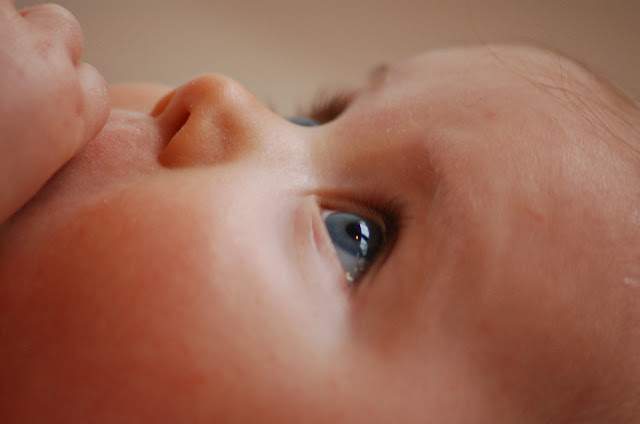When does a baby start talking?
Delays in the development of speech and language are common and early treatment is vital. in this post, we talk about how to identify speech and language delays and knowing really when a baby start talking.
An infant who has difficulty sucking or who needs prolonged feeding times.
A child who isn't using gestures by the first birthday.
A child who still prefers gestures to vocalizations after 12 months or a child who has trouble imitating sounds after 18 months.
Like many other skills, all children develop speech and language at their own pace, so it may be normal for one child to acquire certain skills weeks or even months before another child does, but there are guidelines that can help you determine whether your child is developing important speech and language skills on time or in short whether a baby has started talking or communicating.
There are general developmental milestones for speech and language development and there is some variability in them and that's really based on the individual child. But if we would take a two-year-old child, for example, a two-year-old child ought to be able to do some simple things like follow a two-step direction, put together a two, three, four-word phrase on a pretty consistent basis and is able to communicate and make their needs known without very much difficulty.

A normal three-year-old child ought to be able to follow two-step unrelated directions pretty consistently and ought to be able to recite a nursery rhyme or a simple prayer without any difficulty as well as answer questions about that. A three-year-old child can answer simple questions like what is your name? how old are you? what are you wearing? and what did you have for breakfast this morning?
This is the universal question for parents whose baby is grown past a year; when does a baby start talking? Speech is a vital part of human development, learning and communication from the moment babies are born. Infants listen to and watch others in order to develop their own speech and language skills, but sometimes children need assistance in building their communication skills.
A language delay occurs when the child is not reaching normal developmental milestones and this is usually something that's identified by a pediatrician or a family practice doctor. During wellness visits, the doctors tend to ask very pointed questions about language development in addition to gross motor and fine motor development.
This kid would be able to sequence a series of information that is not related, usually about three things that are not related and repeat that back without any difficulty. And a three-year-old should be able to communicate five and six-word phrases, usually pretty grammatically correct with some minor errors. A parent should be aware of signs that might suggest a speech or language delay. These can include:
A variety of factors can impact speech and language development baby start talking at a late stage. That's some of the factors that can lead to a speech and language delay would be, for example, a child with a hearing loss.
The child's not going to reproduce speech any better than they're able to hear it and it doesn't mean the child has a permanent or sensory neural type hearing loss. The child who has a history of otitis media, which is air infections with associated hearing loss can lead to speech and language delays.
If the child has developmental delays in other areas of his development, for example with his gross motor and fine motor development, that can be a cause for speech and language development as well. There can be emotional factors that can contribute to that lack of appropriate stimulation and so forth. In many cases, we don't really know the reason why, but we do know what we can do to help the child to enable him to function the way he should for his age.
If a parent suspects a speech and language delay, time is of the essence, talk to your pediatrician or family doctor about your concerns, and your physician could help you decide whether your child's development is in the normal range or if an evaluation by a speech and language pathologist is needed.
Early intervention is so important because we know that the earlier children are identified with developmental problems, particularly speech and language. The earlier therapy can ensue and the earlier we can get those problems turned around.
As soon as a child is born, parents have opportunities to impact speech and language development. Parents can help children build these important skills by spending time communicating with their children through activities such as talking and signing.
They can also read to their child every day, starting as early as six months and throughout their child's development. Parents can use everyday situations to reinforce language skills by naming foods in the grocery store or identifying objects when driving in a car.
They can also read to their child every day, starting as early as six months and throughout their child's development. Parents can use everyday situations to reinforce language skills by naming foods in the grocery store or identifying objects when driving in a car.
Parents know their children best and are often the first to recognize speech and language delays. If you suspect your child is delayed in his or her development, trust your instance, discuss your concerns with your pediatrician or family practice doctor and have your baby start talking.









No comments:
Post a Comment